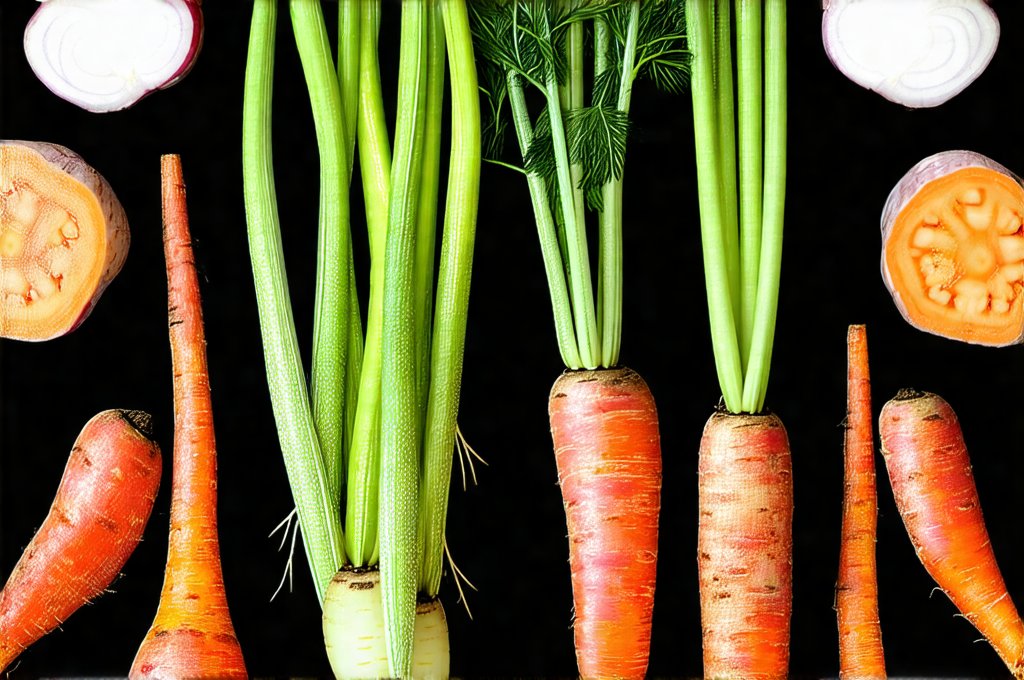The modern world is characterized by constant stimulation – screens, deadlines, news cycles, and an unrelenting pace. This perpetual state of “doing” can disconnect us from our bodies and disrupt our natural rhythms, often manifesting as digestive distress. Many experience bloating, gas, constipation, or a general feeling of unease after meals, not necessarily due to food intolerance, but rather a lack of grounding and mindful presence around the act of eating itself. Root vegetables, deeply connected to the earth from which they grow, offer a powerful antidote to this disconnection. They are inherently nourishing, both physically and energetically, offering stability and calm when incorporated thoughtfully into our diets.
Root vegetables aren’t just about sustenance; they represent a tangible link to nature’s cyclical processes – growth, harvest, dormancy, renewal. This connection can be profoundly beneficial for individuals seeking to cultivate inner peace and balance their digestive systems. They are often dense in nutrients and fiber, providing sustained energy without the spikes and crashes associated with processed foods. Furthermore, preparing and consuming root vegetables mindfully — truly engaging with their textures, aromas, and flavors – encourages a slower pace of life and promotes mindful digestion. This article explores how to best utilize these gifts from the earth to create dishes that are not only delicious but actively support calm and balanced digestive function. If you’re wondering are warm meals better for sensitive digestion, this can be a great place to start.
The Energetics of Root Vegetables & Digestion
Root vegetables possess unique energetic qualities rooted in their growth cycle and connection to the earth. In many traditional healing systems, like Ayurveda and Traditional Chinese Medicine, foods aren’t just seen as collections of nutrients, but as carriers of prana or qi – vital life force energy. Root vegetables, growing downwards into the dark, fertile soil, are believed to accumulate grounding, stabilizing energy. This is in direct contrast to lighter, more expansive energies found in fruits and leafy greens. When our digestive systems are overwhelmed by stress, anxiety, or rapid movement, this grounding energy can be incredibly supportive.
This isn’t about replacing other foods; it’s about balance. A diet solely comprised of light, airy foods might leave us feeling unmoored and disconnected, while an excess of heavy, grounding foods could lead to stagnation. The key is intentional inclusion. Introducing root vegetables into your meals, particularly during times of stress or digestive upset, can help anchor you back into the present moment and ease the burden on your system. Consider how their earthy flavors and textures invite a slower, more deliberate chewing process – a fundamental aspect of healthy digestion often overlooked in our fast-paced world. Understanding how to combine foods can also be helpful here.
Root vegetable dishes prepared with mindful intention become an act of self-care. The simple act of peeling, chopping, and cooking these vegetables can be meditative, allowing us to slow down and connect with the nourishment we are creating for ourselves. This contrasts sharply with grabbing a quick, processed snack while multitasking – a common scenario that often leads to rushed eating and digestive issues. By cultivating this mindful approach, we shift from merely consuming food to actively receiving its benefits. Can connection and calm truly support digestion? Many find it does!
Preparing Root Vegetables For Optimal Digestion
Proper preparation is essential to unlock the full digestive benefits of root vegetables. Often, simply cooking them isn’t enough; certain techniques can dramatically improve their digestibility and nutrient absorption. This involves more than just choosing a recipe – it’s about understanding how to modify cooking methods and pairings to suit individual needs.
- Soaking: For some individuals, soaking root vegetables in water before cooking can reduce the presence of compounds that contribute to gas and bloating. A few hours (or even overnight) soak, changing the water once or twice, can make a significant difference. This is particularly helpful for legumes added to root vegetable dishes.
- Combining with Digestive Aids: Pairing root vegetables with spices known to aid digestion is a powerful strategy. Ginger, cumin, fennel, and turmeric are excellent choices. Incorporate them generously into your cooking – not just for flavor but for their functional benefits.
- Cooking Methods: Steaming, roasting, or slow-cooking are generally more digestible than frying or boiling. Frying adds unnecessary fats that can burden the digestive system, while excessive boiling can leach out nutrients. Roasting caramelizes the natural sugars, enhancing flavor and making them more appealing. Slow cooking breaks down fibers, improving digestibility.
Beyond these techniques, consider your personal tolerance levels. What works for one person may not work for another. Pay attention to how different root vegetables affect you individually and adjust your preparation methods accordingly. Experiment with various spices and cooking times until you find what feels best for your body. Remember that digestion is a highly individual process. Knowing how to shop for sensitive digestion can also make things easier.
Mindful Eating Practices With Root Vegetable Dishes
The benefits of root vegetables extend beyond their nutritional content and energetic qualities; they are magnified when combined with mindful eating practices. This isn’t about strict rules or restrictions, but rather cultivating awareness around our relationship with food. It’s about turning mealtime into a sanctuary—a space for nourishment, gratitude, and self-compassion.
- Create a Calm Environment: Minimize distractions during mealtimes. Turn off the TV, put away your phone, and find a quiet space where you can focus on your food.
- Engage Your Senses: Before taking the first bite, take a moment to appreciate the colors, textures, and aromas of your dish. Notice how it looks, feels, and smells.
- Chew Thoroughly: This is perhaps the most important aspect of mindful digestion. Chewing breaks down food into smaller particles, making it easier for your stomach to process. It also stimulates saliva production, which contains enzymes that aid in digestion.
- Eat Slowly: Savor each bite and pay attention to your body’s signals of fullness. Avoid rushing through your meal; allow yourself time to truly enjoy the experience.
Root Vegetable Dish Ideas For Calm Digestion
Here are a few recipe ideas incorporating these principles, designed to promote calm digestion:
- Roasted Root Vegetable Medley with Cumin & Ginger: Combine parsnips, carrots, sweet potatoes, and beets tossed in olive oil, cumin, ginger, and a pinch of sea salt. Roast until tender and slightly caramelized.
- Creamy Carrot & Fennel Soup: A blend of roasted carrots, fennel bulb, vegetable broth, and a touch of coconut cream. Season with nutmeg and black pepper to aid digestion.
- Beetroot Salad with Walnuts & Orange Dressing: Roasted beetroot slices paired with toasted walnuts, orange segments, and a light dressing made from olive oil, orange juice, and maple syrup. The slight sweetness balances the earthiness of the beets.
These dishes are starting points—feel free to experiment and adapt them to your own preferences and dietary needs. The most important thing is to approach each meal with intention, gratitude, and awareness, allowing the grounding energy of root vegetables to nourish both body and mind. Are fermented foods always good for digestion? It’s worth considering your individual needs. Ultimately, cultivating a mindful relationship with food, alongside incorporating these earthy treasures into our diets, empowers us to find greater balance, calm, and digestive ease in a world that often feels overwhelmingly fast-paced. Are you eating too late for good digestion? It’s important to be mindful of your timing. And finally, are some healthy foods overrated? A balanced perspective is always helpful!


















